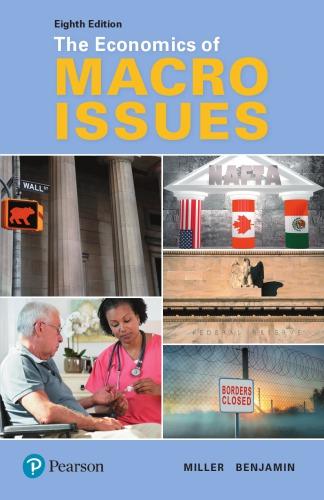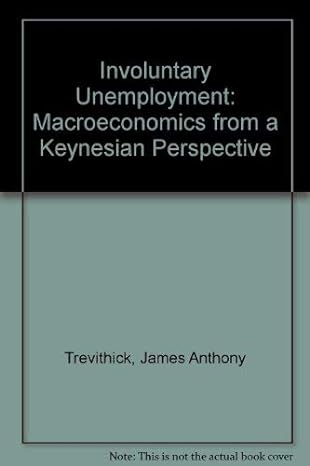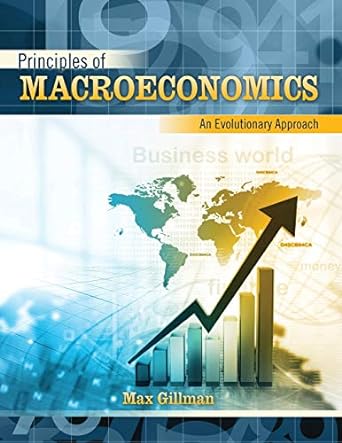Go back


The Economics Of Macro Issues(8th Edition)
Authors:
Roger LeRoy Miller, Daniel K. Benjamin

Cover Type:Hardcover
Condition:Used
In Stock
Shipment time
Expected shipping within 2 DaysPopular items with books
Access to 30 Million+ solutions
Free ✝
Ask 50 Questions from expert
AI-Powered Answers
✝ 7 days-trial
Total Price:
$0
List Price: $59.95
Savings: $59.95(100%)
Solution Manual Includes
Access to 30 Million+ solutions
Ask 50 Questions from expert
AI-Powered Answers
24/7 Tutor Help
Detailed solutions for The Economics Of Macro Issues
Price:
$9.99
/month
Book details
ISBN: 9780134531991
Book publisher: Pearson College Div
Get your hands on the best-selling book The Economics Of Macro Issues 8th Edition for free. Feed your curiosity and let your imagination soar with the best stories coming out to you without hefty price tags. Browse SolutionInn to discover a treasure trove of fiction and non-fiction books where every page leads the reader to an undiscovered world. Start your literary adventure right away and also enjoy free shipping of these complimentary books to your door.
Book Summary: Developmental Macroeconomics: Access to Demand, the Exchange Rate and Growth offers a new approach to development economics and macroeconomics. It is a Keynesian-structuralist approach to economics applied to middle income countries that emphasizes the strategic role of demand in creating investment opportunities that are essential to economic development. It also explores crucial links between short-term full employment and financial stability with medium term growth. While this book emphasizes the central role played by the exchange rate it does not ignore other macroeconomic prices (the interest rate, the inflation rate and the profit rate). It develops a group of concepts and models and blends them together in the model of the tendency to the cyclical overvaluation of the exchange rate in developing countries. According to this model, the exchange rate tends to be chronically overvalued. In so far that this is true the exchange rate ceases to be just a short-term problem to be treated by macroeconomics and becomes central to development economics and should be crucially oriented to manage the exchange rate and keep it competitive at the industrial equilibrium level. The book closes with the presentation of new developmentalism – a national development strategy based on the system of models previously discussed that is both an alternative to old national-developmentalism and to liberal orthodoxy or the Washington consensus.
Customers also bought these books
Frequently Bought Together
Top Reviews for Books
Request mzjpssc
( 4 )
"Delivery was considerably fast, and the book I received was in a good condition."










